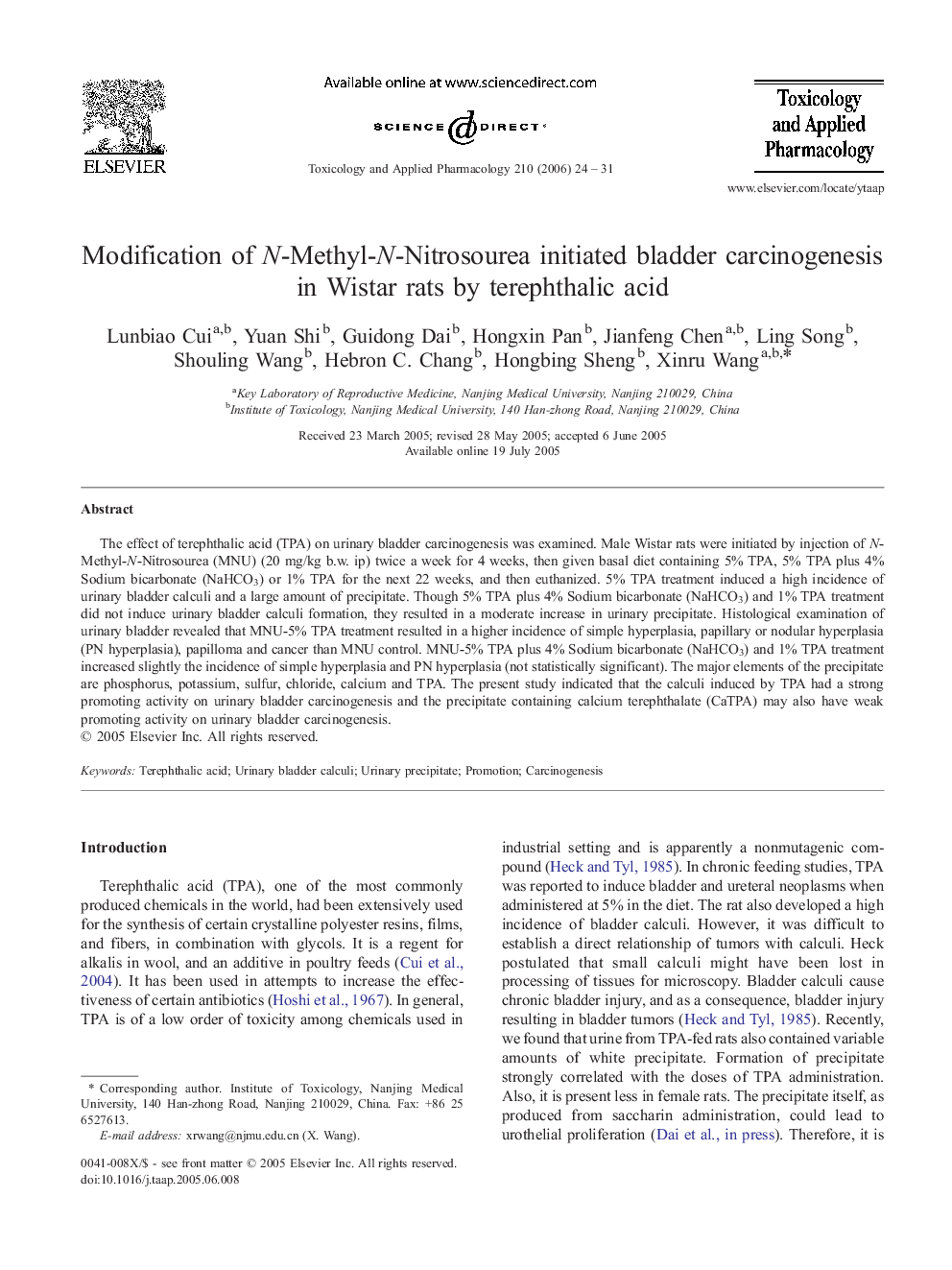| Article ID | Journal | Published Year | Pages | File Type |
|---|---|---|---|---|
| 2571896 | Toxicology and Applied Pharmacology | 2006 | 8 Pages |
The effect of terephthalic acid (TPA) on urinary bladder carcinogenesis was examined. Male Wistar rats were initiated by injection of N-Methyl-N-Nitrosourea (MNU) (20 mg/kg b.w. ip) twice a week for 4 weeks, then given basal diet containing 5% TPA, 5% TPA plus 4% Sodium bicarbonate (NaHCO3) or 1% TPA for the next 22 weeks, and then euthanized. 5% TPA treatment induced a high incidence of urinary bladder calculi and a large amount of precipitate. Though 5% TPA plus 4% Sodium bicarbonate (NaHCO3) and 1% TPA treatment did not induce urinary bladder calculi formation, they resulted in a moderate increase in urinary precipitate. Histological examination of urinary bladder revealed that MNU-5% TPA treatment resulted in a higher incidence of simple hyperplasia, papillary or nodular hyperplasia (PN hyperplasia), papilloma and cancer than MNU control. MNU-5% TPA plus 4% Sodium bicarbonate (NaHCO3) and 1% TPA treatment increased slightly the incidence of simple hyperplasia and PN hyperplasia (not statistically significant). The major elements of the precipitate are phosphorus, potassium, sulfur, chloride, calcium and TPA. The present study indicated that the calculi induced by TPA had a strong promoting activity on urinary bladder carcinogenesis and the precipitate containing calcium terephthalate (CaTPA) may also have weak promoting activity on urinary bladder carcinogenesis.
